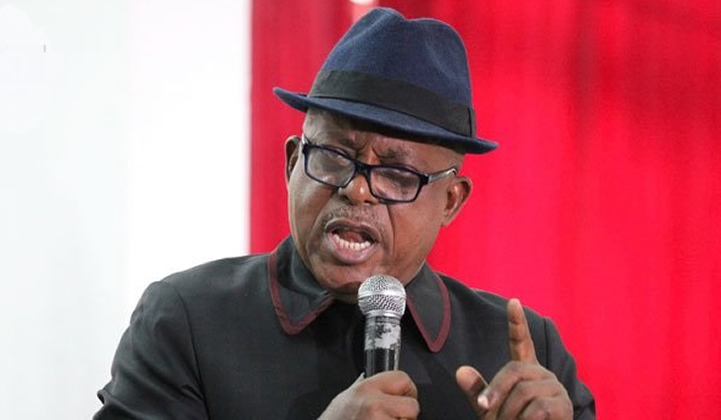Prince Uche Secondus, a former National Chairman of the Peoples Democratic Party (PDP), has raised grave concerns regarding the future of democracy in Nigeria, particularly with the looming 2027 elections. He emphasizes that the current ruling party, the All Progressives Congress (APC), has effectively dismantled democratic processes in the country, thereby raising doubts about whether elections will even take place. In his statement, Secondus condemns what he perceives as a systematic assault on democratic norms, triggered by the APC’s alleged misgovernance strategies. This skepticism is fueled by recent events, especially the governorship election in Edo State, which Secondus describes as an egregious act of electoral fraud devoid of legal integrity and respect for the electorate.
Secondus’s critique encompasses a broader disillusionment with the Independent National Electoral Commission (INEC) under the leadership of Mahmoud Yakubu. He points to the apparent lack of accountability and remorse displayed by INEC, specifically regarding the dismal conduct surrounding the 2023 elections. The former party chairman underscores that the improper handling of elections in states like Imo, Kogi, and now Edo reflects a pattern of malpractice endangering Nigeria’s democratic fabric. He expresses deep concern that these electoral practices could become the new norm if not adequately addressed, suggesting that such sham elections bring Nigeria closer to becoming a one-party state, where dissenting voices are systematically silenced.
Highlighting the comments from the APC National Chairman, Abdullahi Ganduje, Secondus feels vindicated in his assertions. Ganduje’s proclamation that the ruling party would replicate the “Edo template” in future elections in Ondo and Anambra, suggests a calculated approach towards sustaining undemocratic practices. This revelation alarms Secondus, who views it as an admission of intent to manipulate the electoral process across Nigeria, further entrenching the ruling party’s hold on power. This pattern would not only suppress opposition but also continue to erode the democratic principles that allow for competitive politics.
The essence of a healthy democracy, according to Secondus, lies in the existence of opposing factions that can effectively challenge the ruling party and hold it accountable. The evolving political landscape in Nigeria, marked by rigged elections, harassment of opposition leaders, and the collusion of security and electoral officers, highlights a troubling trend. He makes it clear that if the fraudulent actions witnessed in the Edo elections become accepted, the feasibility of conducting credible elections in the future diminishes significantly. The urgency of these circumstances compels a re-examination of the electoral process to ensure that democracy remains vibrant and functional.
Secondus warns that the implications of the rigged Edo election extend beyond immediate political ramifications; they speak to the global perception of Nigeria’s governance. He articulates that the nation’s prestige is at stake and that international observers are closely monitoring the trajectory of its democracy. The actions of the current regime not only tarnish Nigeria’s democratic image but also detract from the potential for political stability and development. Countries worldwide utilize democracy as a vehicle for progress, and Secondus underscores that Nigeria cannot afford to be an outlier that falls victim to its own political failings and governance.
In conclusion, Prince Uche Secondus has issued a clarion call for the revival and reassessment of Nigeria’s democratic principles. He argues that the actions taken by the APC threaten to undermine the foundation of democracy, positioning the country on the brink of a perilous one-party system. With accusations of electoral fraud and misgovernance now echoing through the political corridors, the future of elections in Nigeria stands uncertain. Secondus’s observations serve not just as an indictment of current governance but as a rallying cry for opposition, urging a cohesive effort to restore democratic values and ensure that every citizen’s voice remains significant in shaping the country’s political landscape.


